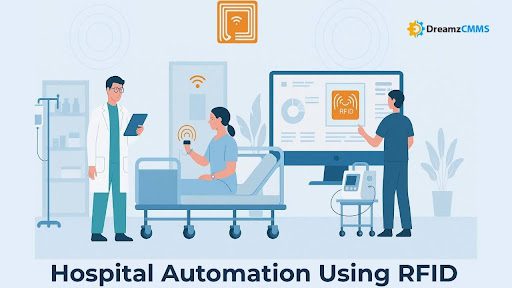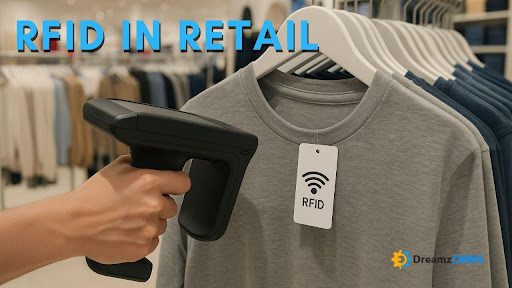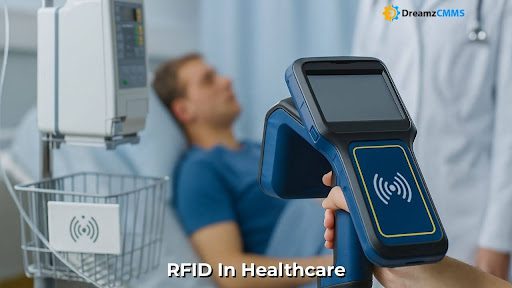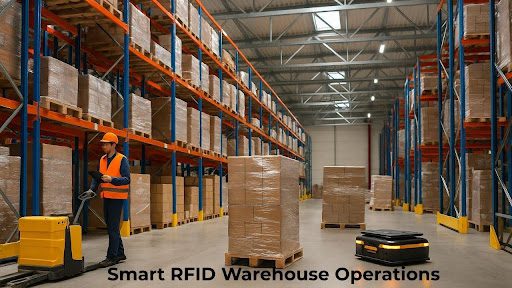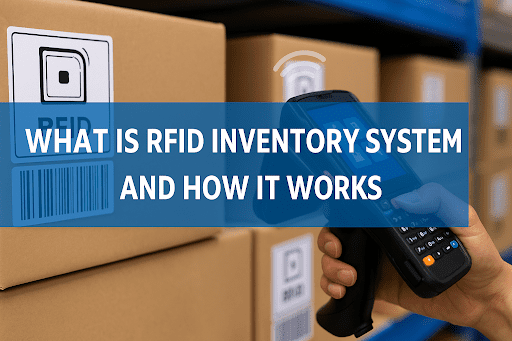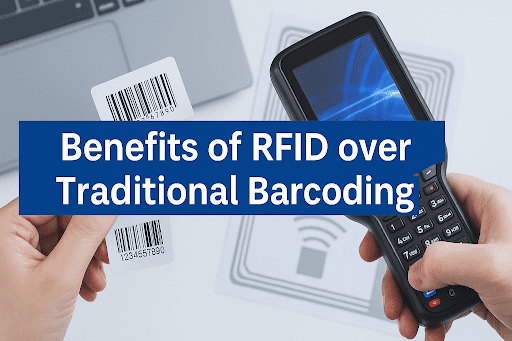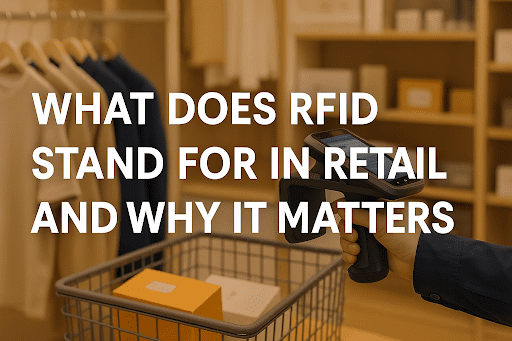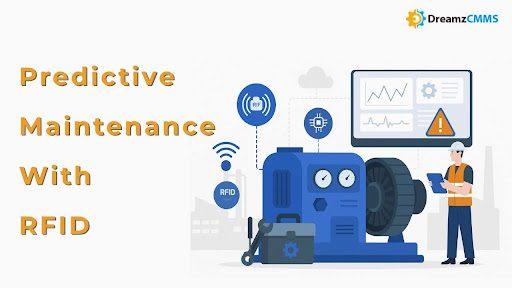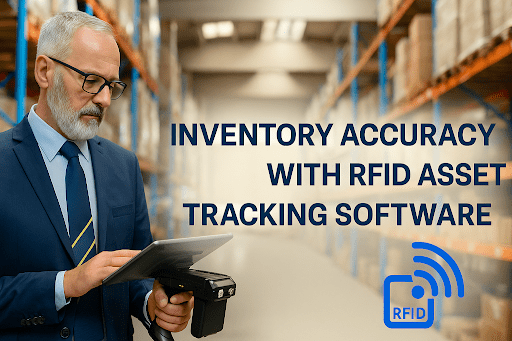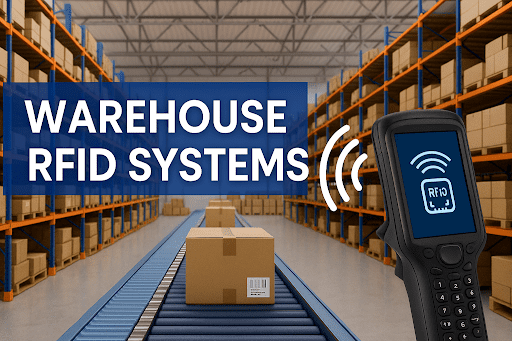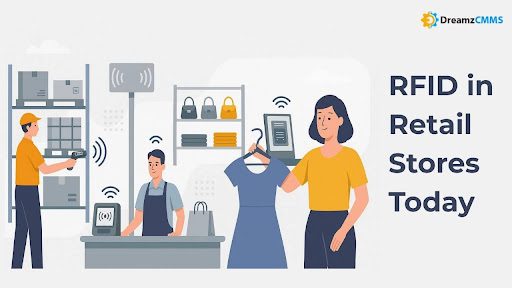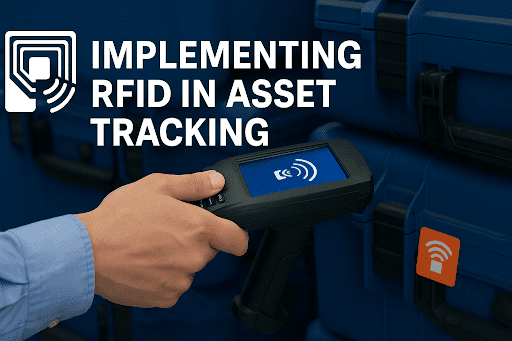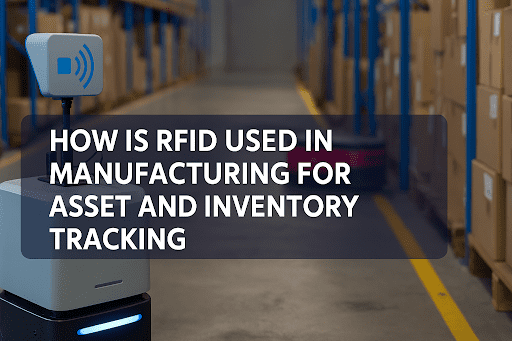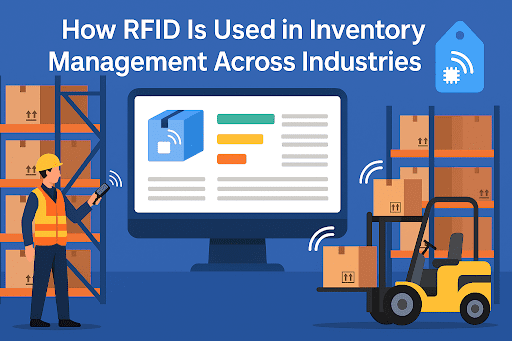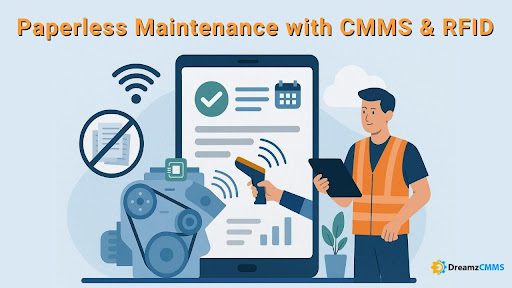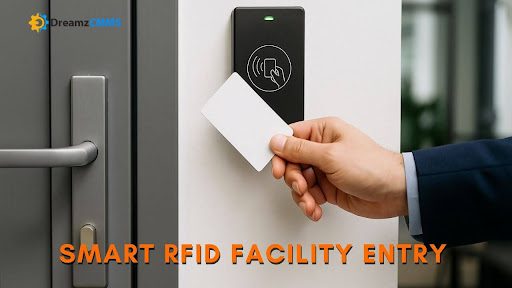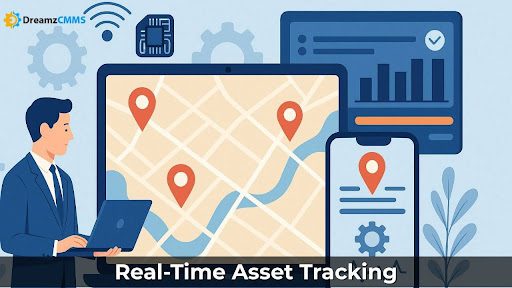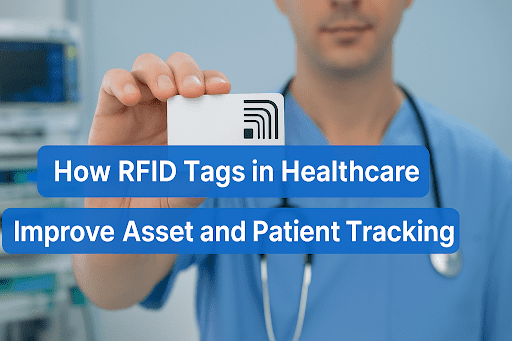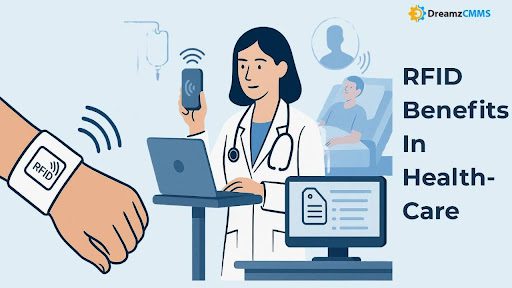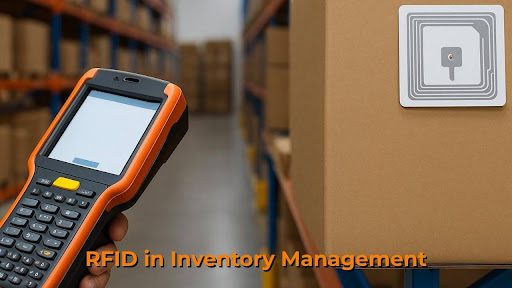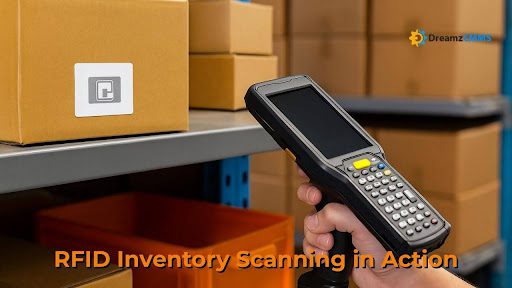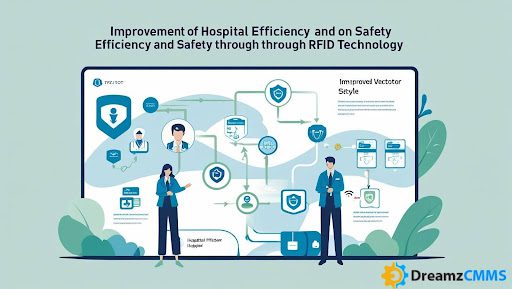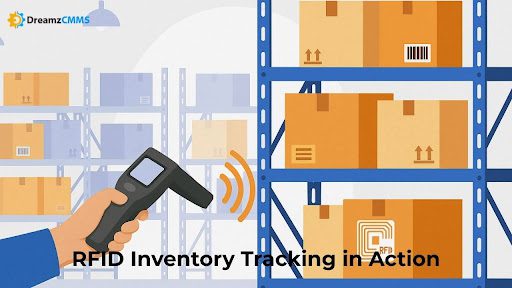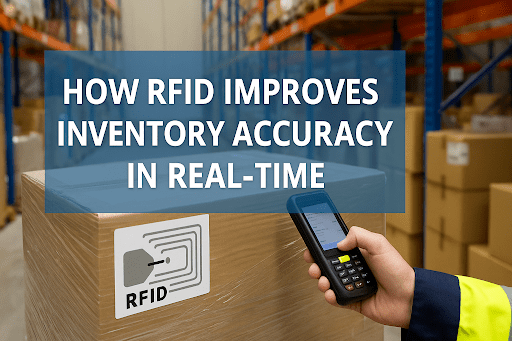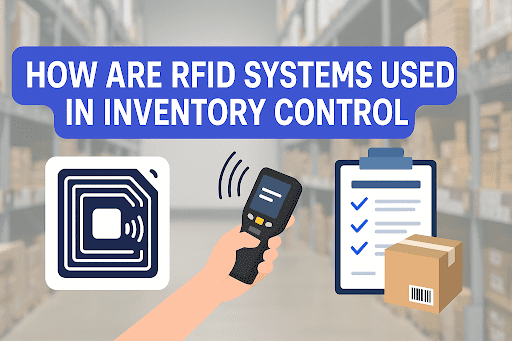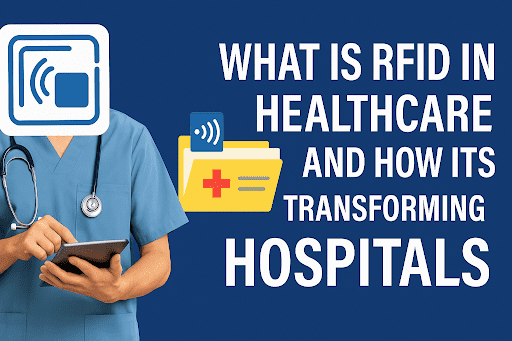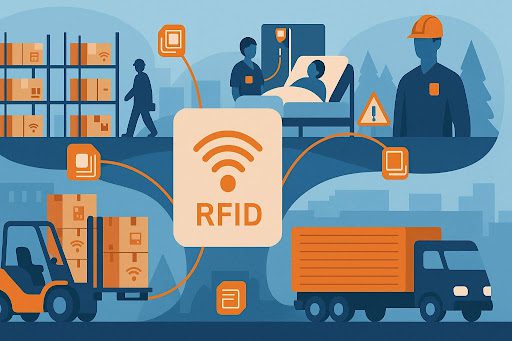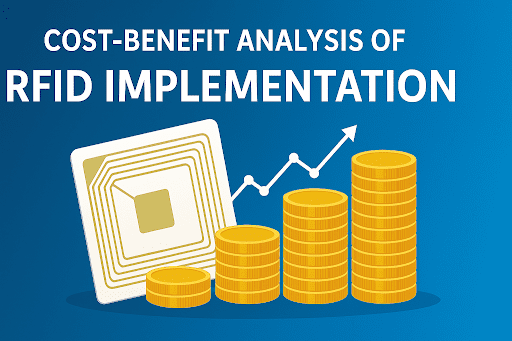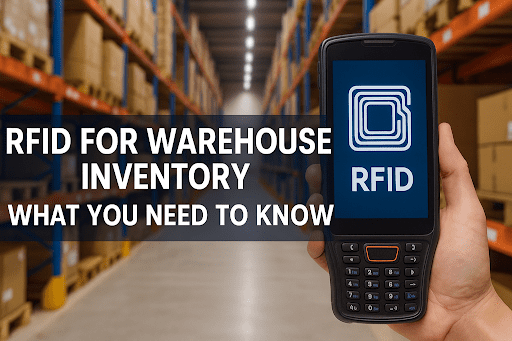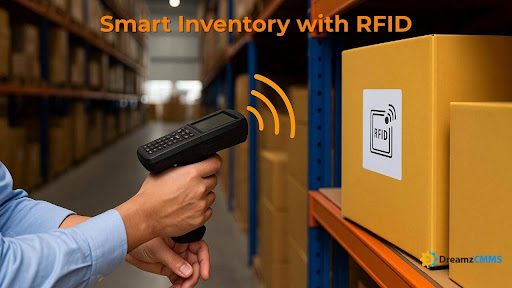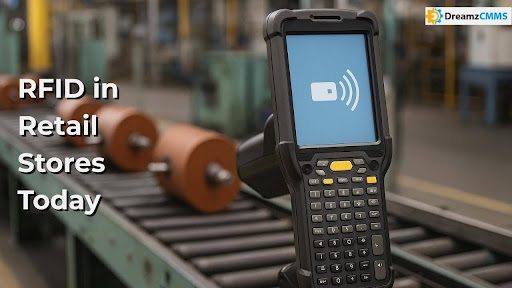 BACK TO Blog
BACK TO Blog
Asset Rental Management
RFID Asset Tracking
RFID for Cold Chain: Real-Time Monitoring & Compliance
- June 04, 2025
- DreamzCMMS Team
- 9 minutes read
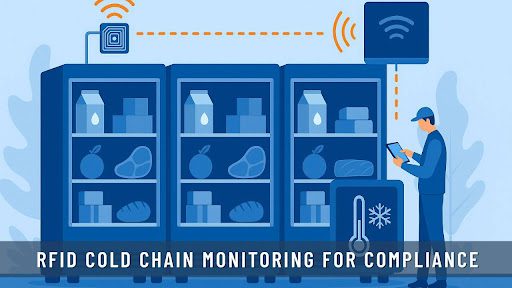
- June 04, 2025
- DreamzCMMS Team
- 9 minutes read
Companies that operate in pharmaceuticals and food and beverage sectors alongside biotechnology require precise temperature control throughout product transport and storage to stay compliant with mandatory regulations. Temperature-controlled supply chain operations in the cold chain sector must be strictly monitored to preserve product quality together with safety standards and regulatory adherence. The lack of temperature control at any moment will make sensitive goods unusable thus resulting in financial losses and potential liability problems.
RFID technology stands out as a revolutionary solution for cold chain management systems. The tracking system of Radio Frequency Identification (RFID) provides real-time cold chain asset tracking and tamper-proof automatic data capture and logging to ensure seamless regulatory compliance across supply chain operations. RFID supply chain logistics systems enable businesses to track conditions while improving compliance and enhancing operational efficiency.
🔧 Looking to streamline your cold chain equipment maintenance and prevent breakdowns before they happen?
Discover how DreamzCMMS can help with real-time alerts, automated work orders, and compliance reporting.
👉 Explore Asset Maintenance Management Software
Understanding the Cold Chain and Its Challenges
The cold chain represents a series of temperature-controlled production processes together with storage facilities and distribution networks alongside all related equipment and logistical systems. The system functions to protect sensitive items including vaccines and perishable foods and biologicals and specialty chemicals while maintaining their shelf life.
Common cold chain challenges include:
- Temperature deviations during transit or warehousing.
- Manual data logging, prone to errors and delays.
- Lack of end-to-end visibility across stakeholders.
- Inadequate real-time alerts or pre-emptive actions.
- Non-compliance with stringent regulations.
RFID technology with tags for monitoring temperature conditions makes essential improvements possible through its cold chain tracking systems.
What is RFID and How It Works in Cold Chains
RFID technology operates by using radio waves to identify and track objects that have RFID tags attached to them. Each RFID tag holds electronically stored information that RFID readers can detect without any need for physical contact or direct visual access.
There are two main types of RFID tags used in cold chain environments:
- The passive RFID Tags draw power from the reader's transmitted signal at an affordable cost.
- The active RFID Tags operate from batteries while sending continuous data streams that include temperature measurements as well as humidity readings and shock level indicators.
Key RFID Components in Cold Chain Monitoring:
- RFID Temperature Sensors provide data about environmental conditions for sensitive products in both storage and transit.
- Strategic placement of RFID Readers and Antennas exists at points including cold rooms, loading docks and trucks.
- Strategic placement of RFID Readers and Antennas exists at points including cold rooms, loading docks and trucks.
Strategic placement of RFID Readers and Antennas exists at points including cold rooms, loading docks and trucks.
Benefits of Using RFID for Cold Chain Management
1. Real-Time Temperature Monitoring
Temperature sensors embedded with RFID systems provide continuous monitoring of environmental conditions throughout all checkpoints for data transmission. The system provides instant access to all data regarding goods at rest or in motion which enables fast action.
2. Automated and Contactless Data Capture
RFID technology replaces manual data entry by automatically storing readings thus improving both accuracy and efficiency during cold chain audits.
3. Regulatory Compliance
RFID ensures cold storage operations meet RFID compliance standards through its ability to produce tamper-evident logs that follow FDA 21 CFR Part 11 as well as EU GDP (Good Distribution Practice) and HACCP for food logistics.
- FDA 21 CFR Part 11
- EU GDP (Good Distribution Practice)
- HACCP for food logistics
4. End-to-End Visibility
The RFID-enabled visibility system for cold chain logistics provides complete transparency into supply network asset locations and temperature conditions as well as chain-of-custody data.
5. Spoilage Prevention
The real-time alert capability of RFID technology used for perishable goods enables instant response to abnormal conditions which protects product integrity and minimizes spoilage.
6. Operational Efficiency
RFID systems minimize time spent on inspections and data logging which enables faster responses and optimized routes and improved cold chain workflows. Related Insight: Related Insight: Implementing RFID in Asset Tracking
Use Cases of RFID in Cold Chain Industries
1. Pharmaceutical Cold Chains
Pharma products like vaccines and biologics are highly temperature-sensitive. The traceable temperature data provided by RFID cold chain monitoring protects product integrity through its consistent monitoring of the temperature.
The global pharmaceutical logistics company tracks temperature-sensitive inventory using RFID real-time monitoring to prevent costly product recalls by maintaining regulatory compliance.
2. Food & Beverage
RFID for cold chain applications in perishable food logistics enables both food safety regulation adherence and shelf-life maintenance.
The meat distributor utilizes RFID-enabled reefer trucks to track environmental conditions every five minutes. The system automatically synchronizes data for verification of both compliance and safety purposes.
3. Biotech & Lab Samples
Medical samples that are critical in nature need highly controlled storage environments. RFID provides cold chain integrity monitoring through its RFID technology which operates in cryogenic storage environments.
The storage history and access logs and temperature range verification of each specimen is tracked by RFID cabinets installed in hospitals.
4. Frozen Goods Delivery
RFID tags installed in retail cold storage areas help retailers verify that frozen products stayed in proper temperature zones throughout the entire delivery and storage process.
RFID proves advantageous for cold chain operations because it delivers dependable tracking capabilities and real-time monitoring and tracing functionality to businesses that require quick results and product tracking. When GPS systems integrate with IoT solutions and RFID technology it becomes possible to track items in real-time. Learn more in our blog on Real-Time Location Tracking with RFID.
CMMS and IoT Integration for Cold Chain Optimization
CMMS (Computerized Maintenance Management Systems) integration with RFID produces enhanced value through its connection to IoT platforms.
- The system should initiate maintenance work orders automatically when storage units exceed acceptable temperature ranges.
- The system enables remote control of cold chain conditions through cloud-based dashboards that allow monitoring from any location.
- Historical Insights: Use RFID data trends to optimize packaging, transit conditions, and storage environments.
- Smart Alerts: Leverage IoT and RFID for smart refrigeration and predictive equipment monitoring.
Implementation Guide: RFID for Cold Chain Monitoring
Step 1: Define Temperature-Sensitive Zones
The identification of medical storage areas and reefer containers must be the first step because these need precise temperature control.
Step 2: Choose the Right RFID Tags
Select between passive and active tags based on shipment duration, environmental conditions, and required frequency of readings.
Step 3: Install Infrastructure
The setup requires placing readers alongside antennas and communication gateways at storage units and entry/exit points and transport vehicles.
Step 4: Configure Thresholds & Alerts
Stakeholders will receive instant alerts through notification rules that detect temperature deviations so they can minimize spoilage.
Step 5: Integrate with CMMS and ERP
RFID systems must exchange data with inventory and maintenance platforms to execute automated responses.
Step 6: Train Staff and Monitor
Logistics and warehouse team members need training to read dashboard information while responding correctly to alerts from RFID systems.
Measuring ROI: Is RFID Worth the Investment?
Organizations across various sectors implement RFID systems which need initial funding for hardware acquisition together with software integration and training and ongoing maintenance expenses yet they achieve substantial returns from cold chain logistics. The full financial evaluation of RFID implementation costs is presented in our Cost-Benefit Analysis of RFID Implementation.
RFID technology enables businesses to achieve return on investment through the following methods:
1. Loss Reduction
Temperature-controlled inventory protection delivers the most visible financial gain among cold chain operations. A single spoiled vaccine shipment or spoiled seafood delivery will cost businesses between tens of thousands to millions of dollars. Real-time intervention made possible by RFID visibility for cold chain logistics prevents such incidents from happening.
2. Improved Regulatory Compliance
Non-compliance audits together with regulatory penalties will damage both financial performance and brand reputation. The implementation of RFID technology generates automatic and accurate immutable audit trails with temperature logs and location history to simplify cold chain audits through RFID technology.
3. Labor Savings
The automation of data logging and condition reporting by RFID reduces the necessity to conduct manual checks along with the use of spreadsheets and physical verification activities. The system results in both cost savings for labor expenses and enhanced staff work productivity.
4. Increased Delivery Reliability
The delivery of fresh perishable goods that arrive undamaged and on time leads to improved customer satisfaction. Pharmaceutical logistics contracts with hospitals or government health agencies might be directly affected by this situation. The use of RFID for monitoring cold chain operations provides better delivery reliability and strengthens customer trust.
Risk Mitigation through RFID in Cold Chain
The strategic risk reduction of RFID cold chain monitoring extends beyond Return on Investment (ROI). The following essential risks that RFID systems help minimize are listed below:
● Product Recalls
The storage logs of temperature-sensitive items including insulin and frozen meat and blood samples need to be present and compliant to prevent product recall situations. RFID tags maintain consistent and reliable data storage which prevents costly product recalls and protects brand reputation.
● Equipment Failure
Smart refrigeration systems enabled by IoT and RFID technology allow users to detect cooling equipment failure and temperature abnormalities which triggers preventive maintenance through CMMS before a total breakdown happens.
● Chain of Custody Disputes
Who handled a product and when? RFID generates traceable custody records through its tag reads at transition points which provides both accountability and transparency in the cold chain operations.
The RFID system enables compliance management and substantially minimizes the security risks involved with handling sensitive inventory. The complete digital platform enables optimization of scheduling and return condition management for cold chain asset management across rental fleets and distributed warehouses.
🔗 Learn how DreamzCMMS supports rental-based operations with Asset Rental Management Software
Conclusion: Why RFID Is the Smart Cold Chain Solution
The operations of cold chain require absolute precision in every aspect. The supply chain management of temperature-sensitive products requires strict adherence to regulations because any deviation may cause financial damage and safety hazards or regulatory violations. RFID for cold chain management delivers the automated accurate transparent systems which defend your products and organizational processes and reputation. You can find more information about our RFID solutions at this link: RFID Asset Tracking Software
RFID technology acts as the critical digital link which unites regulatory compliance with operational performance by monitoring temperature-sensitive goods and streamlining cold chain audits.
Ready to Optimize Your Cold Chain Operations?The RFID-based solutions offered by DreamzCMMS focus on integrating RFID technology for cold storage management alongside logistics tracking and asset monitoring to meet compliance standards and minimize spoilage while enhancing operational performance. Learn more about our platform: DreamzCMMS Book a personalized walkthrough: Free Demo |
Ready for More?
Talk to one of our CMMS experts and see how DreamzCMMS can simplify your maintenance operations.
Book a free consultation